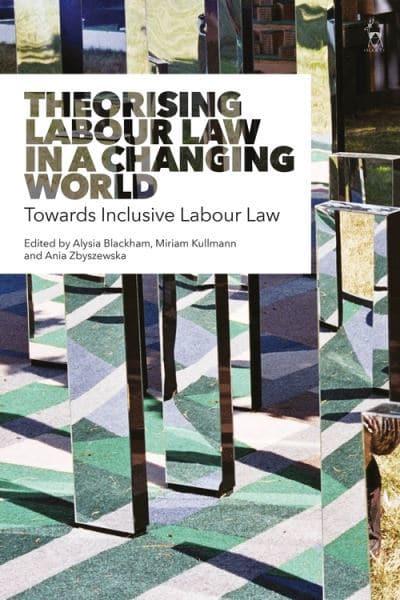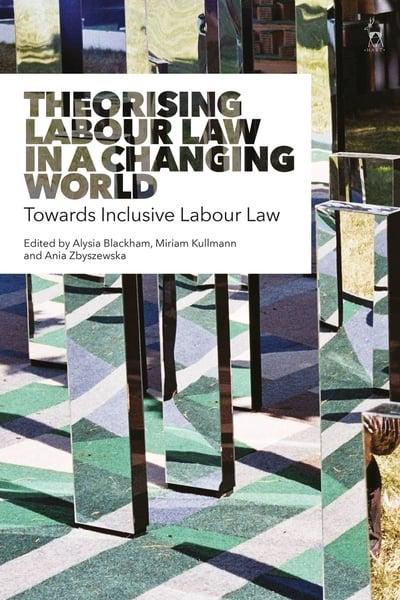Theorising labour law in a changing world
towards inclusive labour law
- ISBN: 9781509946808
- Editorial: Hart Publishing
- Fecha de la edición: 2021
- Lugar de la edición: Oxford. Reino Unido
- Encuadernación: Rústica
- Medidas: 24 cm
- Nº Pág.: 304
- Idiomas: Inglés

This collection brings together perspectives from industrial relations, political economy, political theory, labour history, sociology, gender studies and regulatory theory to build a more inclusive theory of labour law. That is, a theory of labour law that is more inclusive of non-traditional workers (including those in atypical work, or from non-traditional backgrounds); more inclusive of a variety of collective approaches to work regulation that foster solidarity between workers; and more inclusive of interdisciplinary and complex explanations of labour law and its regulatory spaces. The individual chapters speak to this theme of inclusivity in different ways and offer different suggestions for how it might be achieved. They break down the barriers between legal research and other fields, to promote fruitful and integrative conversations across disciplines. In the spirit of inclusivity and intergenerational dialogue, the book blends contributions from early career and emerging scholars with those from leading scholars in the field, featuring critical commentary from senior labour law figures alongside theoretically and empirically informed work.
1. Introduction
Miriam Kullmann, Ania Zbyszewska and Alysia Blackham
PART A
WORK REGULATION AND THE SOCIO-ECONOMIC ORDER
2. Recovering the Impact of Normative Regimes on Labour Relations Practices: A Socio-Historical View of Institutional Requirements
Robert Knegt
3. Theorising Labour Law in the State of Exception: Political and Judicial Responses to Crisis
Lisa Rodgers
4. Redefining the Boundaries of Labour Law: Is 'Double Alienness' a Useful Concept for Classifying Employees in Times of Fractal Work?
Vincenzo Pietrogiovanni
5. Comment: Reconsidering Historical Perspectives Anew – Old Ideas Adapted to New Forms of Work
Nicole Busby
PART B
REVITALISING THE ROLE OF COLLECTIVE REPRESENTATION
6. Back to the Future: Rediscovering the Non-Economic Role, Value and Scope of Labour Law and Collective Labour Institutions in a Changing World
Fotis Vergis
7. Trade Unions, the Gig Economy, and the Feminisation of Work: Lessons from the Past?
Rebecca Zahn
8. A Socio-Legal History of the Coalition of Immokalee Workers
Manoj Dias-Abey
9. Comment: Changing Collective Representation and Action to Meet the Challenges – Historical Lessons and Contemporary Learning
Tonia Novitz
10. Comment: Collectivism and Trade Unions (Past, Present and Future) and the New World of Work
Nicola Smit
PART C
ADVANCING THEORETICAL MODELS TO RESPOND TO THE NEW WORLD OF WORK
11. Employment Regulation and Working Time Through the Lens of a Regulatory Space Approach
Cristina Inversi
12. Re-Systematising Labour Law: Beyond Traditional Systems Theory and Reflexive Law?
Alysia Blackham
13. Argumentative Strategies in the Defence of Labour Law: The Promises of Republican Theory
Anja Eleveld
14. Anti-Authoritarian Employment Relations? Labour Law from an Anarchist Perspective
Andrea Iossa
15. Challenging Labour Law's 'Productivity' Bias Through a Feminist Lens: A Conversation
Ania Zbyszewska and Supriya Routh
16. Comment: Theories of Labour Law Assessed from the Perspective of Reflexive Labour Law
Ralf Rogowski







